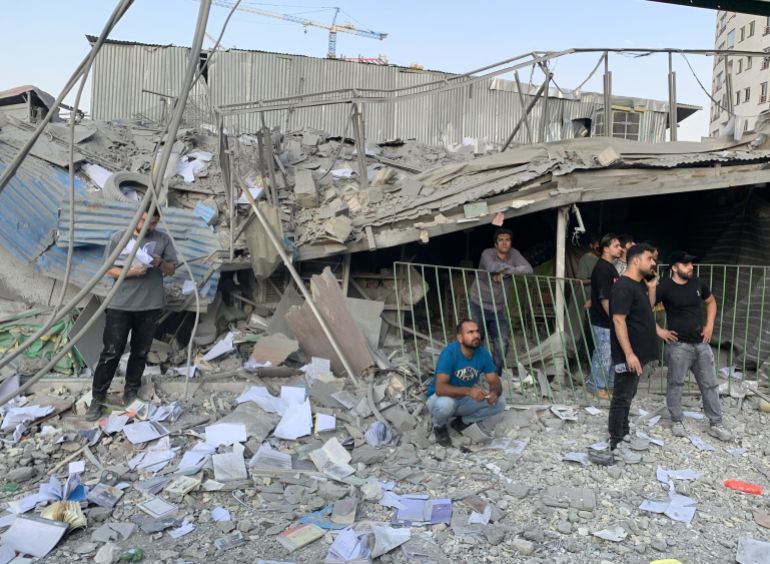Israel on Friday morning struck multiple Iranian military and nuclear facilities, as well as residential homes in Tehran known to house senior security officials, pulling the region to the brink of a full-fledged war between the rivals.
The attacks killed multiple senior members of Iran’s military. They included General Mohammad Bagheri, the chief of staff of Iran’s armed forces and the country’s highest-ranking military official.
Who was Bagheri?
Bagheri was born Mohammad Hossein Afshordi in the 1960s. In his current role, he oversaw both the Islamic Revolutionary Guards Corps (IRGC) and the rest of the country’s military, also ensuring coordination between those different arms of the country’s security apparatus.
He reportedly had a distinguished military career with the IRGC; however, little is known about him outside of his record of service, academic achievements and multiple sanctions imposed by various international bodies.
“A lot [of] higher-ranked intelligence and military officials in Iran tend to be more on the secretive side,” Reza H Akbari, Middle East and North Africa programme manager at the Institute for War and Peace Reporting, told Al Jazeera.
Bagheri joined the IRGC in 1980, a year after the Iranian revolution and the same year the Iran-Iraq war began. That conflict lasted eight years and saw hundreds of thousands of people killed on both sides, with Iran enduring the greater losses.
One of those killed was Bagheri’s older brother, Hassan, who had reportedly founded the IRGC’s military intelligence branch in 1980 and who, aged 27, led a division.
Bagheri fought in the Iran-Iraq war, according to a United States congressional research report, which described him as “an early IRGC recruit who fought against a post-revolution Kurdish uprising and in the Iran-Iraq War”.
According to Iranian media, Bagheri became the head of the IRGC’s intelligence operations in 1983, after the death of his brother. After the war, he also served as deputy head of intelligence and operations, and as the head of the armed forces’ common affairs.
He played a “special role” in a 1997 operation in Iraq against Kurdish forces, according to Rokna, an Iranian state-affiliated news agency. In 2016, he replaced Major-General Seyyed Hassan Firoozabadi as the chief of staff of the IRGC.
He was affiliated with an “elite force within the IRGC,” according to Akbari, tasked with “carrying out the most sensitive missions, especially those related to the air force unit”.
Bagheri was sanctioned by the US in 2019, when the first Trump administration levelled sanctions against what they called the “inner circle” of Iran’s Supreme Leader Ali Khamenei.
The European Union, meanwhile, reportedly sanctioned Bagheri for supplying Russia with drones, while he was further sanctioned by the US, Canada and the United Kingdom for his role in the crackdown on the 2022 protests in Iran following the killing of Mahsa Amini.
Following Bagheri’s assassination, Iran appointed Ahmad Vahidi, a former defence and interior minister, as his interim replacement.

In addition to Bagheri, Israel also assassinated Hossein Salami, commander in chief of the Islamic Revolutionary Guards Corps, and Gholamali Rashid, deputy commander-in-chief of the armed forces.
They also killed multiple nuclear scientists in the Friday morning attacks.
The attacks came as the US and Iran were preparing for their next round of nuclear talks on Sunday in Muscat. Rhetoric over a possible attack from Israel and the US had intensified in recent days and US embassy staff had been put on alert in numerous locations, while Iran had responded with its own warnings of potential retaliation if struck.
The attacks were condemned by many in the international community, including many Gulf states, such as Saudi Arabia, Oman and Qatar, who called it a “flagrant violation” of international law.
US Special Envoy Steve Witkoff said on Friday morning that he still expected talks to continue on Sunday.
But Akbari of the Institute for War and Peace Reporting said he saw little likelihood of the US-Iran negotiations continuing. “I find the plausibility of talks continuing as slim to none,” he said.

Source: Aljazeera

Leave a Reply